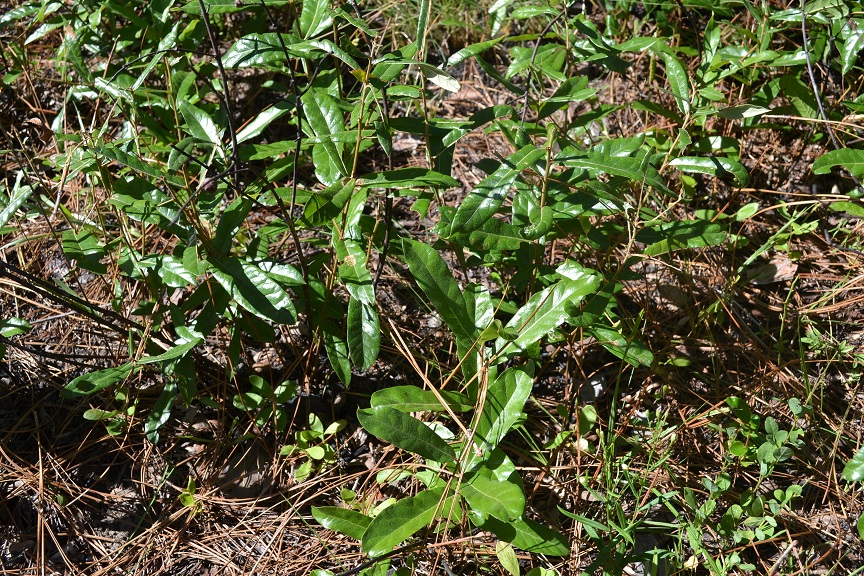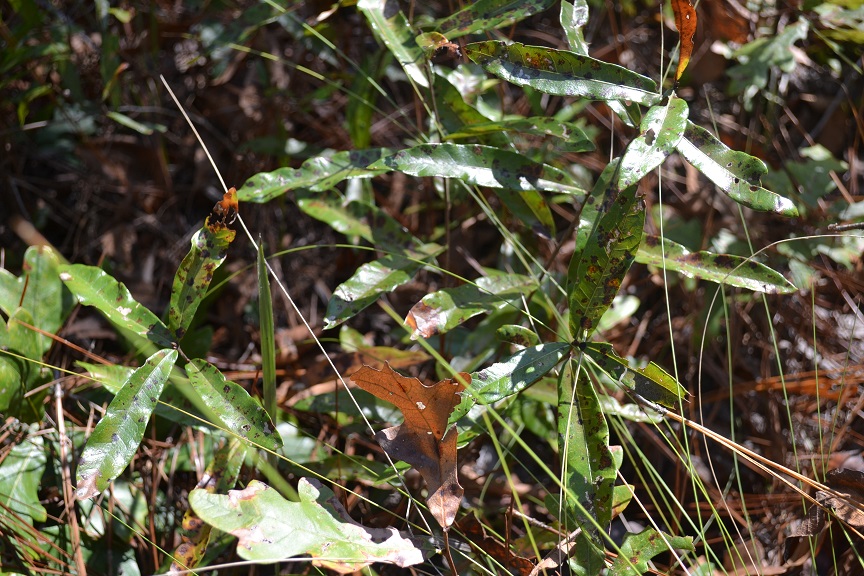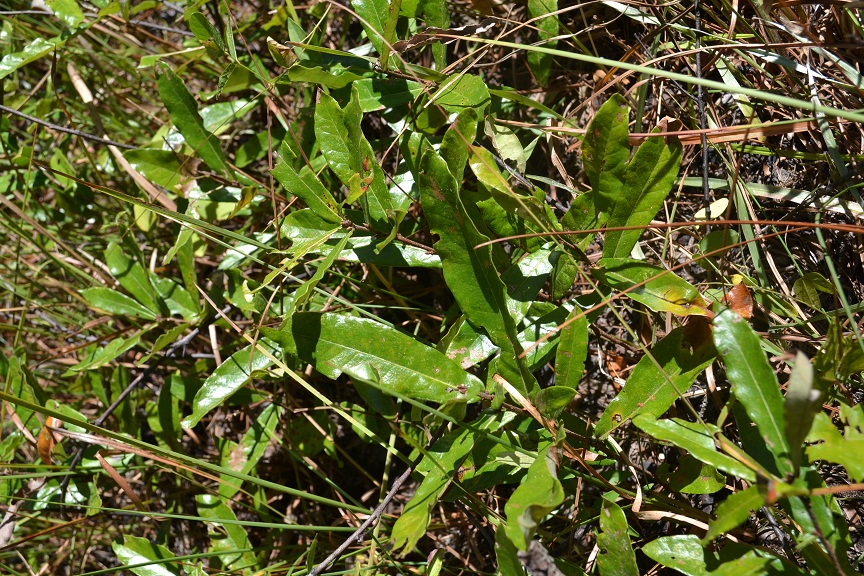Difference between revisions of "Quercus elliottii"
(→Ecology) |
(→Ecology) |
||
| Line 38: | Line 38: | ||
<!--===Seed dispersal===--> | <!--===Seed dispersal===--> | ||
<!--===Seed bank and germination===--> | <!--===Seed bank and germination===--> | ||
| − | + | ||
| + | ===Fire ecology=== <!--Fire tolerance, fire dependence, adaptive fire responses--> | ||
| + | Populations of ''Quercus elliottii'' have been known to persist through repeated annual burns.<ref>Robertson, K.M. Unpublished data collected from Pebble Hill Fire Plots, Pebble Hill Plantation, Thomasville, Georgia.</ref> | ||
<!--===Pollination and use by animals===--> | <!--===Pollination and use by animals===--> | ||
<!--===Diseases and parasites===--> | <!--===Diseases and parasites===--> | ||
Revision as of 18:20, 21 July 2021
| Quercus elliottii | |
|---|---|
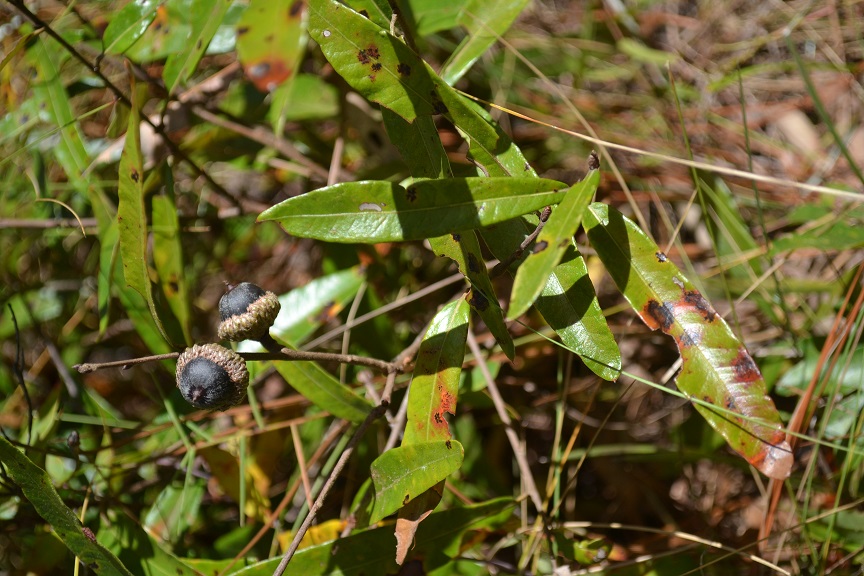
| |
| Photo by Kevin Robertson | |
| Scientific classification | |
| Kingdom: | Plantae |
| Division: | Tracheophyta- Vascular plants |
| Class: | Magnoliopsida - Dicotyledons |
| Order: | Fagales |
| Family: | Fagaceae |
| Genus: | Quercus |
| Species: | Q.elliotii |
| Binomial name | |
| Quercus elliotii Walter | |
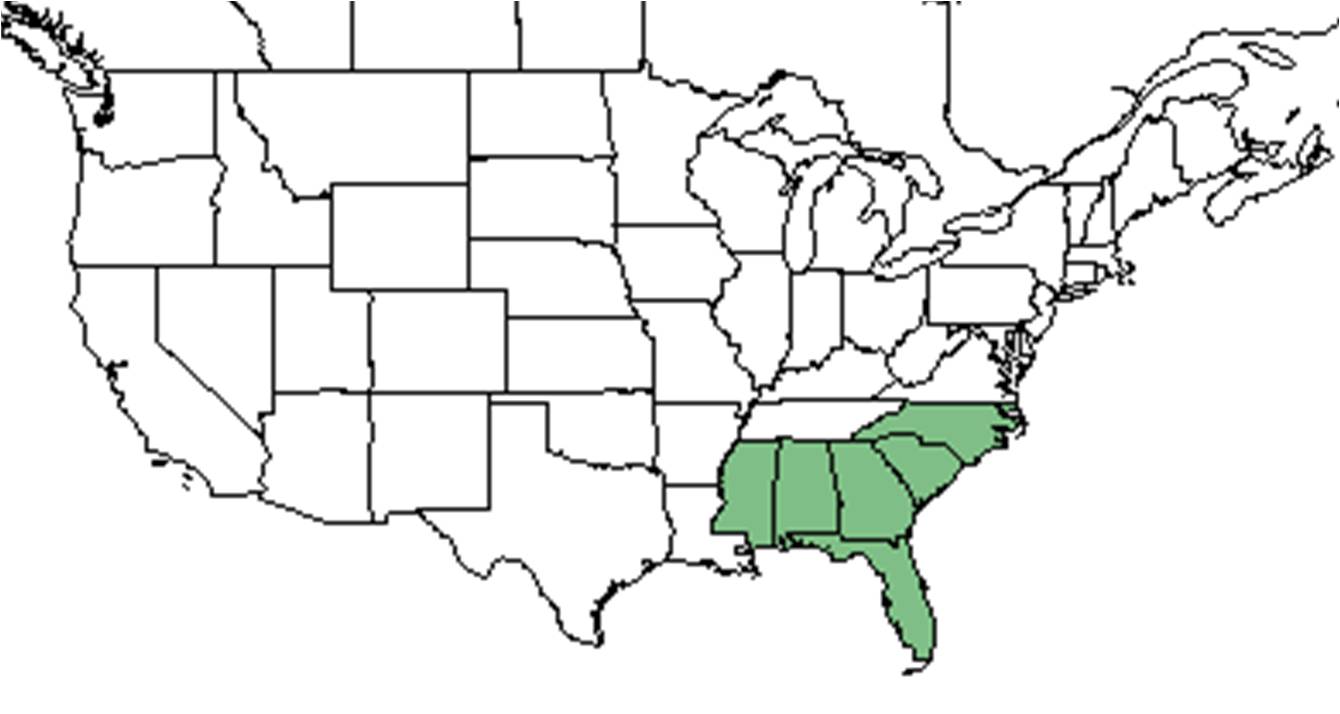
| |
| Natural range of Quercus elliotii from USDA NRCS Plants Database. | |
Common name: Running oak
Contents
Taxonomic notes
Synonym: Quercus pumila Walter
Description
A description of Quercus elliottii is provided in The Flora of North America.
Distribution
Ecology
Habitat
Quercus elliotii has been found in pine flatwoods, longleaf pine-oak stands, longleaf pine-wiregrass, open pinelands, and upland pinelands.[1][2] It is also found in disturbed areas including along roadsides, frequently burned areas, and along fences. It responds negatively to soil disturbance by clearcutting and chopping in North Florida flatwoods forests.[3]
Associated species: Sabatia, Q. minima, and Cynontonum.[1]
Phenology
Quercus elliottii has been observed flowering from March to April.[4]
Fire ecology
Populations of Quercus elliottii have been known to persist through repeated annual burns.[5]
Conservation, cultivation, and restoration
Cultural use
Photo Gallery
References and notes
- ↑ 1.0 1.1 Florida State University Herbarium Database. URL: http://herbarium.bio.fsu.edu. Last accessed: May 2021. Collectors: Loran C. Anderson, Wilson Baker, Angus Gholson, Robert K. Godfrey, H. Kurz, J. B. Nelson, N. Summerlin. States and counties: Florida: Gulf, Jackson, Leon, Liberty, and Wakulla.
- ↑ Ostertag, T.E., and K.M. Robertson. 2007. A comparison of native versus old-field vegetation in upland pinelands managed with frequent fire, South Georgia, USA. Pages 109–120 in R.E. Masters and K.E.M. Galley (eds.). Proceedings of the 23rd Tall Timbers Fire Ecology Conference: Fire in Grassland and Shrubland Ecosystems.
- ↑ Moore, W.H., B.F. Swindel, and W.S. Terry. (1982). Vegetative Response to Clearcutting and Chopping in a North Florida Flatwoods Forest. Journal of Range Management 35(2):214-218.
- ↑ Nelson, G. PanFlora: Plant data for the eastern United States with emphasis on the Southeastern Coastal Plains, Florida, and the Florida Panhandle. www.gilnelson.com/PanFlora/ Accessed: 19 MAY 2021
- ↑ Robertson, K.M. Unpublished data collected from Pebble Hill Fire Plots, Pebble Hill Plantation, Thomasville, Georgia.
